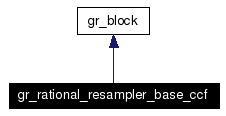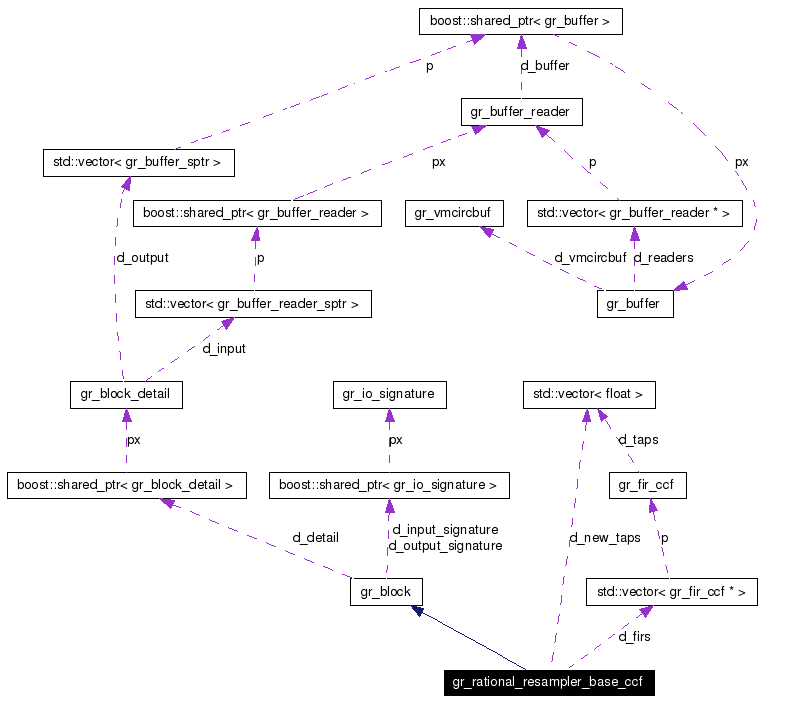
#include <gr_rational_resampler_base_ccf.h>
Inheritance diagram for gr_rational_resampler_base_ccf:


Public Member Functions | |
| ~gr_rational_resampler_base_ccf () | |
| unsigned | history () const |
| void | set_history (unsigned history) |
| unsigned | interpolation () const |
| unsigned | decimation () const |
| void | set_taps (const std::vector< float > &taps) |
| void | forecast (int noutput_items, gr_vector_int &ninput_items_required) |
| Estimate input requirements given output request. | |
| int | general_work (int noutput_items, gr_vector_int &ninput_items, gr_vector_const_void_star &input_items, gr_vector_void_star &output_items) |
| compute output items from input items | |
Friends | |
| gr_rational_resampler_base_ccf_sptr | gr_make_rational_resampler_base_ccf (unsigned interpolation, unsigned decimation, const std::vector< float > &taps) |
|
|
|
|
|
|
|
||||||||||||
|
Estimate input requirements given output request.
noutput_items, estimate the number of data items required on each input stream. The estimate doesn't have to be exact, but should be close.
Reimplemented from gr_block. |
|
||||||||||||||||||||
|
compute output items from input items
Implements gr_block. |
|
|
Assume block computes y_i = f(x_i, x_i-1, x_i-2, x_i-3...) History is the number of x_i's that are examined to produce one y_i. This comes in handy for FIR filters, where we use history to ensure that our input contains the appropriate "history" for the filter. History should be equal to the number of filter taps. Reimplemented from gr_block. |
|
|
|
|
|
Reimplemented from gr_block. |
|
|
|
|
||||||||||||||||
|
|
 1.4.1
1.4.1